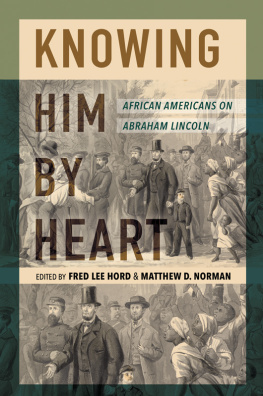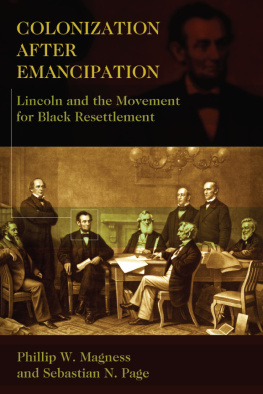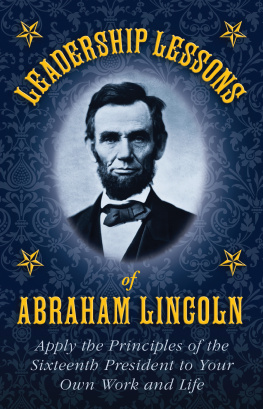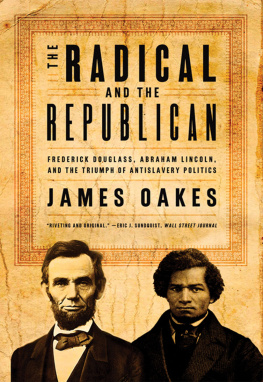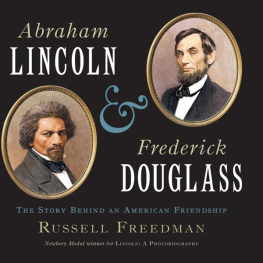Fred Lee Hord - Knowing Him by Heart: African Americans on Abraham Lincoln
Here you can read online Fred Lee Hord - Knowing Him by Heart: African Americans on Abraham Lincoln full text of the book (entire story) in english for free. Download pdf and epub, get meaning, cover and reviews about this ebook. year: 2022, publisher: University of Illinois Press, genre: Science. Description of the work, (preface) as well as reviews are available. Best literature library LitArk.com created for fans of good reading and offers a wide selection of genres:
Romance novel
Science fiction
Adventure
Detective
Science
History
Home and family
Prose
Art
Politics
Computer
Non-fiction
Religion
Business
Children
Humor
Choose a favorite category and find really read worthwhile books. Enjoy immersion in the world of imagination, feel the emotions of the characters or learn something new for yourself, make an fascinating discovery.
- Book:Knowing Him by Heart: African Americans on Abraham Lincoln
- Author:
- Publisher:University of Illinois Press
- Genre:
- Year:2022
- Rating:5 / 5
- Favourites:Add to favourites
- Your mark:
Knowing Him by Heart: African Americans on Abraham Lincoln: summary, description and annotation
We offer to read an annotation, description, summary or preface (depends on what the author of the book "Knowing Him by Heart: African Americans on Abraham Lincoln" wrote himself). If you haven't found the necessary information about the book — write in the comments, we will try to find it.
A comprehensive and valuable reader, Knowing Him by Heart examines Lincolns still-evolving place in Black American thought.
|IntroductionFrederick Douglass, Emancipation Day Address at Poughkeepsie, New York, August 2, 1858
Frederick Douglass, The Chicago Nominations, June, 1860
H. Ford Douglas, Address at Framingham, Massachusetts, July 4, 1860
Frederick Douglass, The Inaugural Address, April, 1861
President Lincolns Inaugural, Editorial in the Weekly Anglo-African, New York, March 16, 1861
The Fatal Step Backward, Editorial in the Anglo-African, September 21, 1861
Jabez P. Campbell, The President and the Colored People, October 1, 1861, Trenton, New Jersey
Robert Hamilton, The Presidents Message, Editorial in the Anglo-African, December 7, 1861
Robert Hamilton, The Hanging of Gordon for Man Stealing, Editorial in the Anglo-African, March 1, 1862
Henry McNeal Turner on Lincolns Proposal for Compensated Emancipation, March 16, 1862
The Emancipation Message, Editorial in the Weekly Anglo-African, New York, March 22, 1862
Daniel Alexander Payne, Account of Meeting with Abraham Lincoln, April 1862
Henry Highland Garnet on Emancipation in Washington, DC, May 12, 1862
Philip A. Bell, Editorial on Lincolns Revocation of Gen. Hunters Emancipation Decree in the Pacific Appeal, San Francisco, California, June 14, 1862
Edward M. Thomas to Abraham Lincoln, Washington, DC, August 16, 1862
Frederick Douglass, The President and His Speeches, September, 1862
Resolutions of Newtown, New York Meeting on Lincolns Colonization Proposal, August 20, 1862
Alfred P. Smith, Letter to President Lincoln in Response to Colonization Proposal, Saddle River, New Jersey, September 5, 1862
Frances Ellen Watkins Harper on Lincolns Colonization Proposal, September 27, 1862
Philip A. Bell, Editorial on the Preliminary Emancipation Proclamation in the Pacific Appeal, San Francisco, California, September 27, 1862
Frederick Douglass, Emancipation Proclaimed, October, 1862
George B. Vashon, Open Letter to President Lincoln on Colonization, October, 1862
Henry McNeal Turner, Response to Preliminary Emancipation Proclamation, September 26, 1862
Thomas Strother on Lincolns Colonization Proposal, October 4, 1862
Ezra R. Johnson, The Liberty Bells are Ringing, October 4, 1862
C. P. S., The President on Emancipation, October 4, 1862
Free Black People of Washington, DC, Letter to President Lincoln on Colonization, November 2, 1862
Frederick Douglass, January First 1863
Emancipation Celebration at Beaufort, South Carolina, January 1, 1863
Philip A. Bell, The Year of Jubilee Has Come! January 3, 1863
Robert Hamilton, The Great Event, Anglo-African, January 3, 1863
Emancipation Celebration at Trenton, New...
Fred Lee Hord: author's other books
Who wrote Knowing Him by Heart: African Americans on Abraham Lincoln? Find out the surname, the name of the author of the book and a list of all author's works by series.

